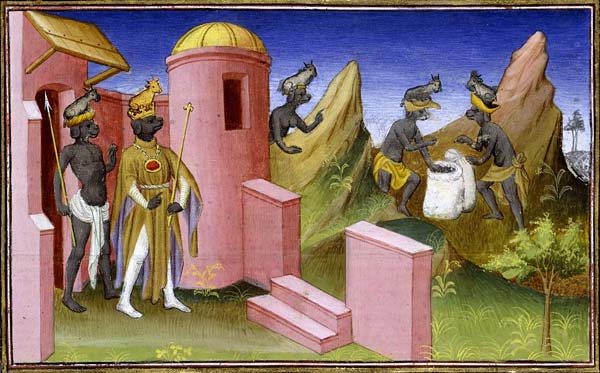- Download:
- MP3 Audio75 MB

This episode, we check in once again with 14th-century traveler Odoric of Pordenone as he takes in the many lands between the Indian Ocean and the South China Sea, including Sri Lanka, Java, Borneo, Vietnam, and some that remain rather mysterious.This episode, we check in once again with 14th-century traveler Odoric of Pordenone as he takes in the many lands between the Indian Ocean and the South China Sea, including Sri Lanka, Java, Borneo, Vietnam, and some that remain rather mysterious.
Today’s Texts:
- Odoric of Pordenone. “The Eastern Parts of the World, Described.” Cathay and the Way Thither, translated by Henry Yule, vol. 1, Hakluyt Society, 1866, pp. 43-162. Google Books.
- Odoricus. “The Voyage of Frier Beatus Ordoricus to Asia Minor, Armenia, Chaldea, Persia, India, China, and Other Remote Parts, &c.” The Principal Navigations, Voyages, Traffiques and Discoveries of the English Nation, edited and translated by Richard Hakluyt, vol. 4, Macmillan 1904, pp. 371-444. Google Books.
References:
- Bressan, L. “Ordoric of Pordenone (1213-1331): His Vision of China and South-East Asia and His Contribution to Relations Between Asia and Europe.” Journal of the Malaysian Branch of the Royal Asiatic Society, vol. 70, no. 2 (273), 1997, pp. 1-23. JSTOR, www.jstor.com/stable/41493334.
- Herodotus. The Histories. Translated by Aubrey de Sélincourt. Revised ed., Penguin Classics, 1972.
- Marrow, Paul. “Grinch Historians Steal Christmas.” Pilipino Express News Magazine, 17 Dec. 2008, www.pilipino-express.com/history-a-culture/in-other-words/189-grinch-historians-steal-christmas.html.
- Metcalf, Peter. “Wine of the Corpse: Endocannibalism and the Great Feast of the Dead in Borneo.” Representations, no. 17, Winter 1987, pp. 96-109. JSTOR, www.jstor.com/stable/3043794.
- Valtrová, Jana. “Beyond the Horizons of Legends: Traditional Imagery and Direct Experience in Medieval Accounts of Asia.” Numen, vol. 57, no. 2, 2010, pp. 154-185. JSTOR, www.jstor.com/stable/27793840.
Audio Credits:
Image: Detail of the Cynocephali of Nicobar, from a 15th-century manuscript of the Itinerarium (or Livre des Merveilles) of Odoric of Pordenone. Paris, Bibliothèque nationale de France, département des Manuscrits, Français 2810, fol. 106.



One reason I think that eating family members MIGHT have been seen as worse than eating defeated enemies could come down to old Catholic beliefs about the the day of judgement and how the body must not be destroyed in order when the last trump is sounded, you may rise from your grave and go to the side of god, forever. I don’t remember all the details but I know that up til recently Catholics were not even supposed to be cremated! And intact corpse was an integral part of being ready for judgement day. So you see, eating and destroying the eternal opportunities for your sworn enemies could be seen as—if not a “good” thing—at least fair enough as total destruction of the enemy. Doing the same thing, even unknowing, would amount to destroying the chance of a loved one, to arise and be with god. That would be a huge, wide eyed, OMG moment of horror for a medieval churchman, I should think. Just a possibility
Interesting! I actually touched on some of those points in Episode 43: “Concerning the Resurrection of Cannibals,” which looked at Thomas Aquinas’s discussion of bodily integrity and resurrection. But I hadn’t thought to link that back up to Odoric’s reaction.
I would not want to mix up my rice wine and funeral jars…